
We kindly inform you that, as long as the subject affiliation of our 300.000+ articles is in progress, you might get unsufficient or no results on your third level or second level search. In this case, please broaden your search criteria.

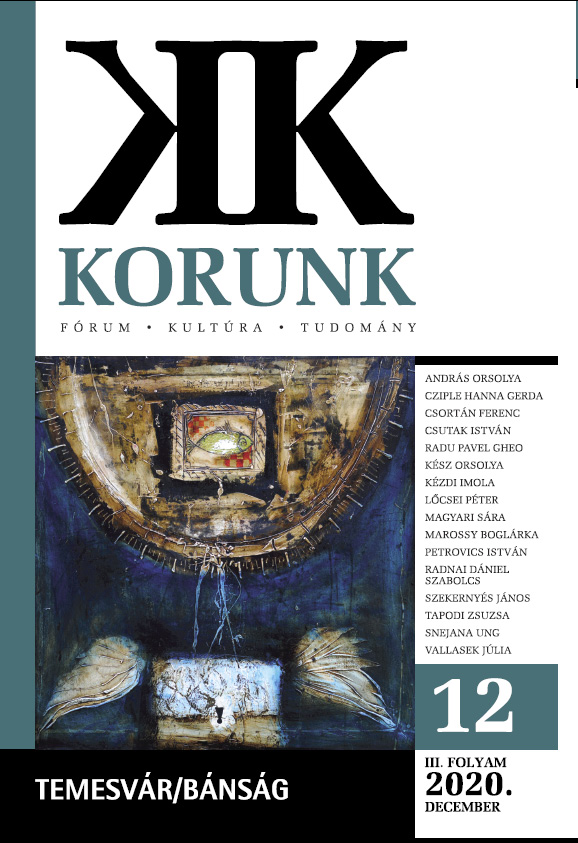
The treaties of Paris and the political changes brought by them marked a special state of in-betweenness for those citizens who entered under new political rule. The spatial practices of rediscovering places once known also required new sets of values and new identities. The article presents the way this change is described in the urban space of a pluriethnic, multilingual town of Temesvár in the novel City in the Fog by József Méliusz, and reflected in the life-strategies, conflicts and decisions of the protagonists.
More...
The main topics of the paper are the geographical aspects of cultural identity, mostly focused on the representation of urban space in contemporary Hungarian poetic texts from Cluj-Napoca and Pécs. In two introductory chapters the article firstly tries to show the methods of national tradition-inventing in 18-19th century, mainly in relation to the ideologies of national language and the geographical space. And the other preliminary chapter delineates the postmodern, postcolonial doubts in connection with the concept of sameness in unified national identity, through the notions of Jacques Derrida’s Monolingualism of the Other. The second part of the paper presents and analyzes some poems from the Kolozsváros anthology (2019) and the volumes of Ferenc André and Balázs Mohácsi. The interpretation of these poems emphasizes the importance of language, home and responsibility in representation of the urban space.
More...
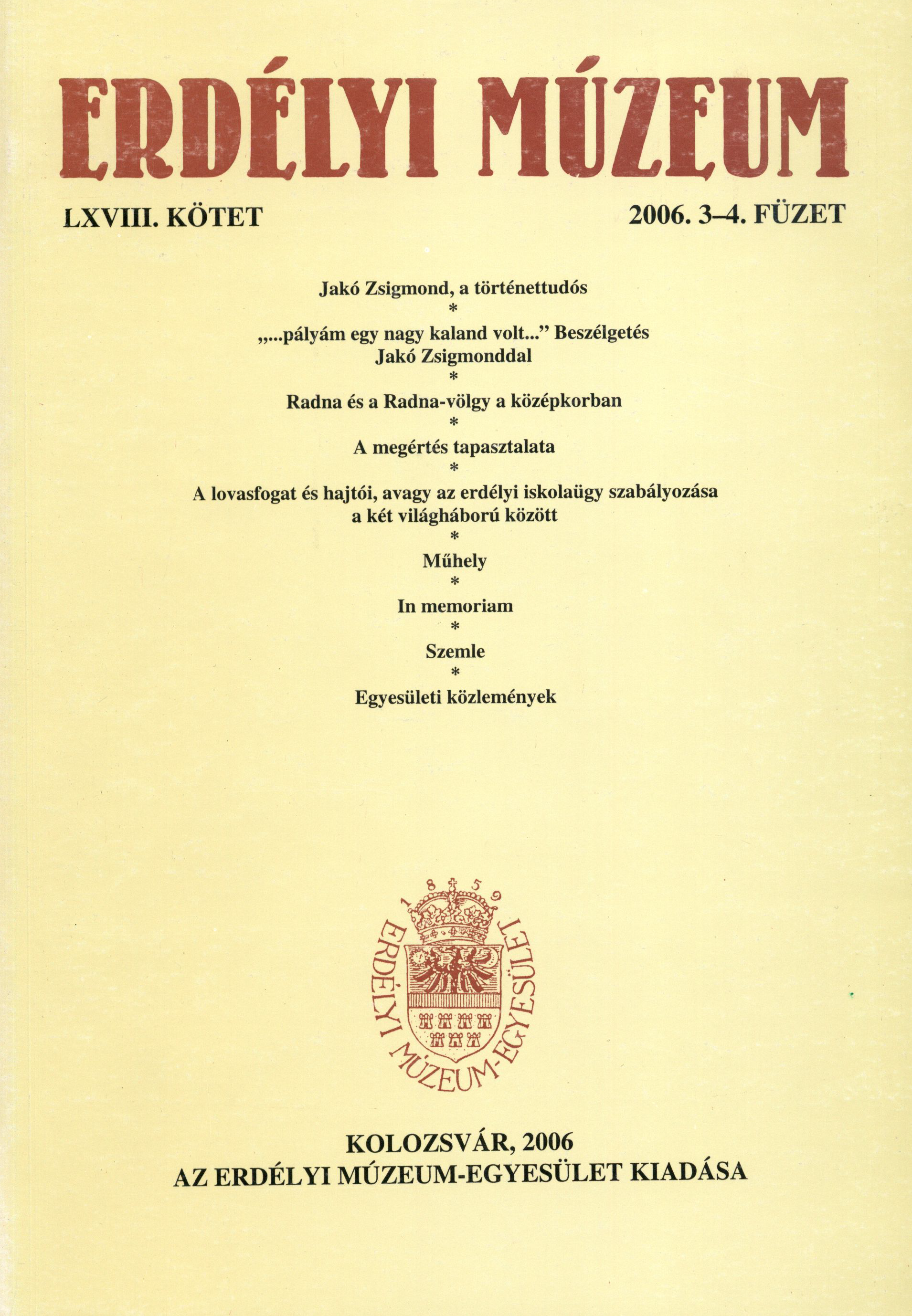
The study analyzes how correspondences were interpreted in the Hungarian literature of the Enlightenment.
More...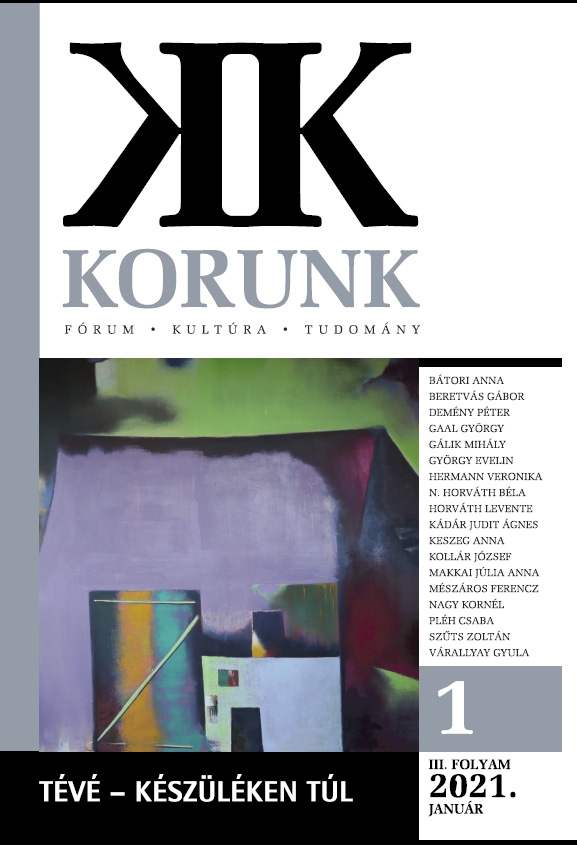
Literary historical essay on the early avant-garde works of th 20th-century Hungarian poet Gyula Illyés, influenced by his stay in Paris.
More...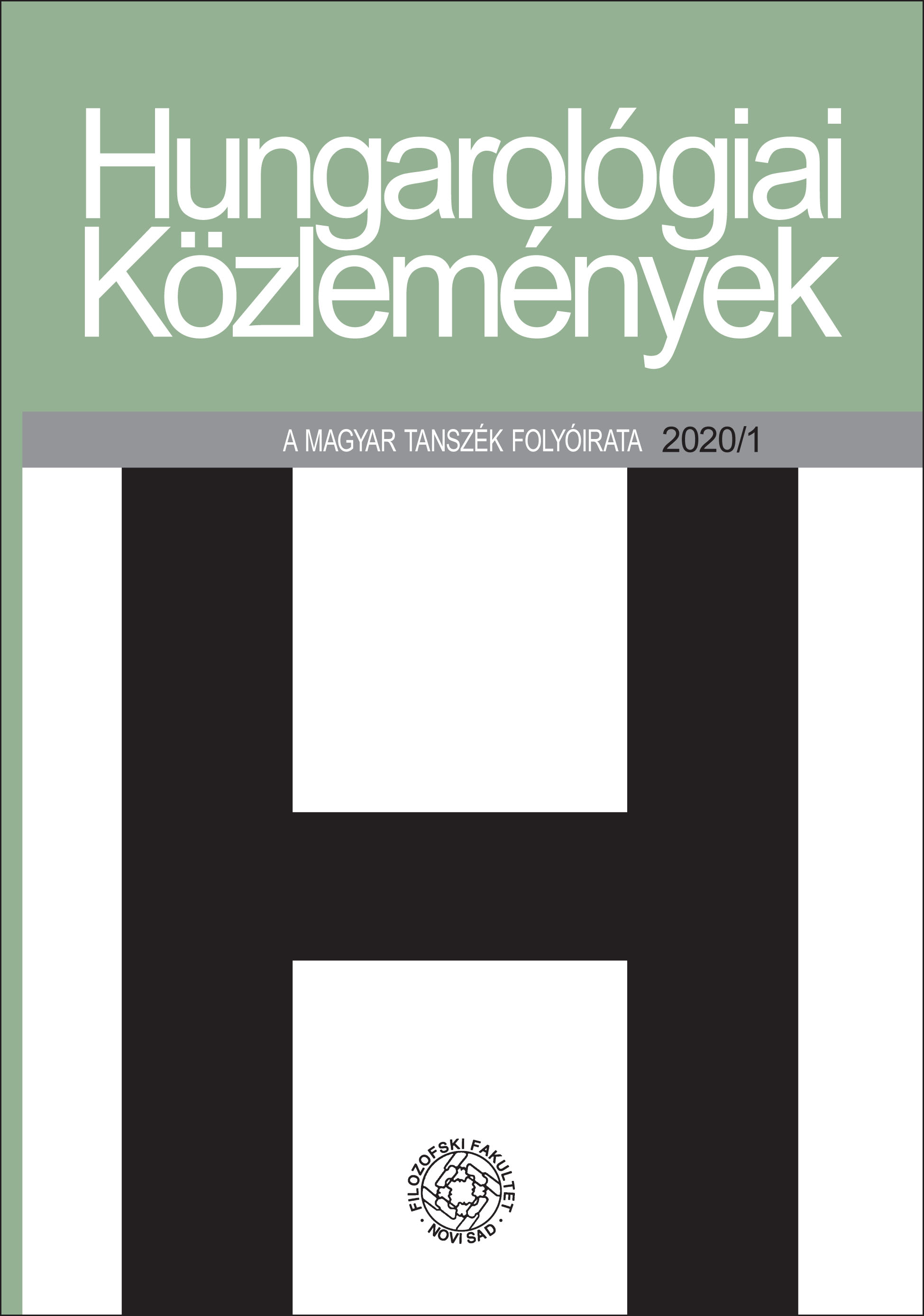
It is not easy to find the exact words to describe the role Imre Bori had in the rediscovery and canonisation of the Hungarian avant-garde beginning with the 1960s. His books have inspired younger generations, but just as important was the inspiration he gave to his contemporaries in Hungary, Miklós Szabolcsi, Miklós Béládi, or Béla Pomogáts, who also played a key role in researching the avant-garde. These exchanges of views were characterised by lively debates, and some of the issues raised may be an impasse even today. We would be disloyal to the spirit of Imre Bori, if we were to automatically concede that he was always right. Sometimes he was wrong, but the consistent systematic nature of his thinking allowed even these misconceptions to lead to new insights. Looking from a span of decades, thought patterns leading to realisation sometimes prove to be more important and more durable than the realisation itself. In my lecture I wish to give an overview of Professor Bori’s system-building work, insights and hypotheses related to the avant- garde from the perspective of a both grateful and critical posterity.
More...
Imre Bori published a still unmatched, remarkably elaborate study on Gyula Krúdy’s works in the period starting with the birth of The Crimson Coach and ending with The Seven Owls. This paper examines looking back from a distance of four decades how long-lasting are the accentuation marks regarding to Krúdy’s oeuvre, what convincing power has the concept of the writer’s role that unites the period under discussion, that is, what the observations are in the field of narrative poetics which also have an incentive effect on Krúdy reception today. The paper first of all focuses on what changes need to be made to the interpretation that assumes realistic narrative behaviour approaching from the horizon of interpretation of literature today, and it also makes an attempt to see what lasting results offer Imre Bori’s Krúdy interpretations despite the changes in discourse.
More...
Gyula Krúdy’s flawless style, the peculiar musicality effected by the cumulation of coordinate pictures, was regarded by contemporary critics as the peak performance of impressionist prose. Imre Bori drew attention to another characteristic. He called the writer’s process of text writing the Krúdy-effect, in this manner of writing the tiny details, a web of micro-realities, pictures, references in the background of foreground events arejust as important, often more important, than the events on the axis of the storyline of short stories and novels with anaemic plots. The study analyses and compares the writing techniques of Krúdy’s texts to the topics, styles and memory techniques of two of his contemporaries, the Spanish Ramón de valle-Inclán (1866–1936] and the Romanian Mateiu Caragiale (1885–1936), seeking to find an explanation for the interferences in the textual world of the authors living far apart.
More...
The article intends to thematize several structural aspects of Imre Bori’s broad world, specifically exploring the complex system of multidimensionality. We are confronted with a literary-historical way of thinking, whose characteristics are the identification of certain problems of modernity, the interpretation of avant-garde discourse, the placement of Yugoslav literary relations in a particular perspective, or the problematization of prose, taking into account thematic-bodily innovations. It is not only a genre issue, but the content composition of the opus that is specifically complex. One of our starting questions is this: from the metaperspective of writing literary history, what are our chances of articulating interrelationships, specific areas of work and components of different roles. The inevitable question is, how do the expression of models, from the beginning of oeuvre, provides a way of seeing within a cohesive system, or within a logical framework of a specific minority program in accordance with special social positions and a special system of opportunity must be counted.
More...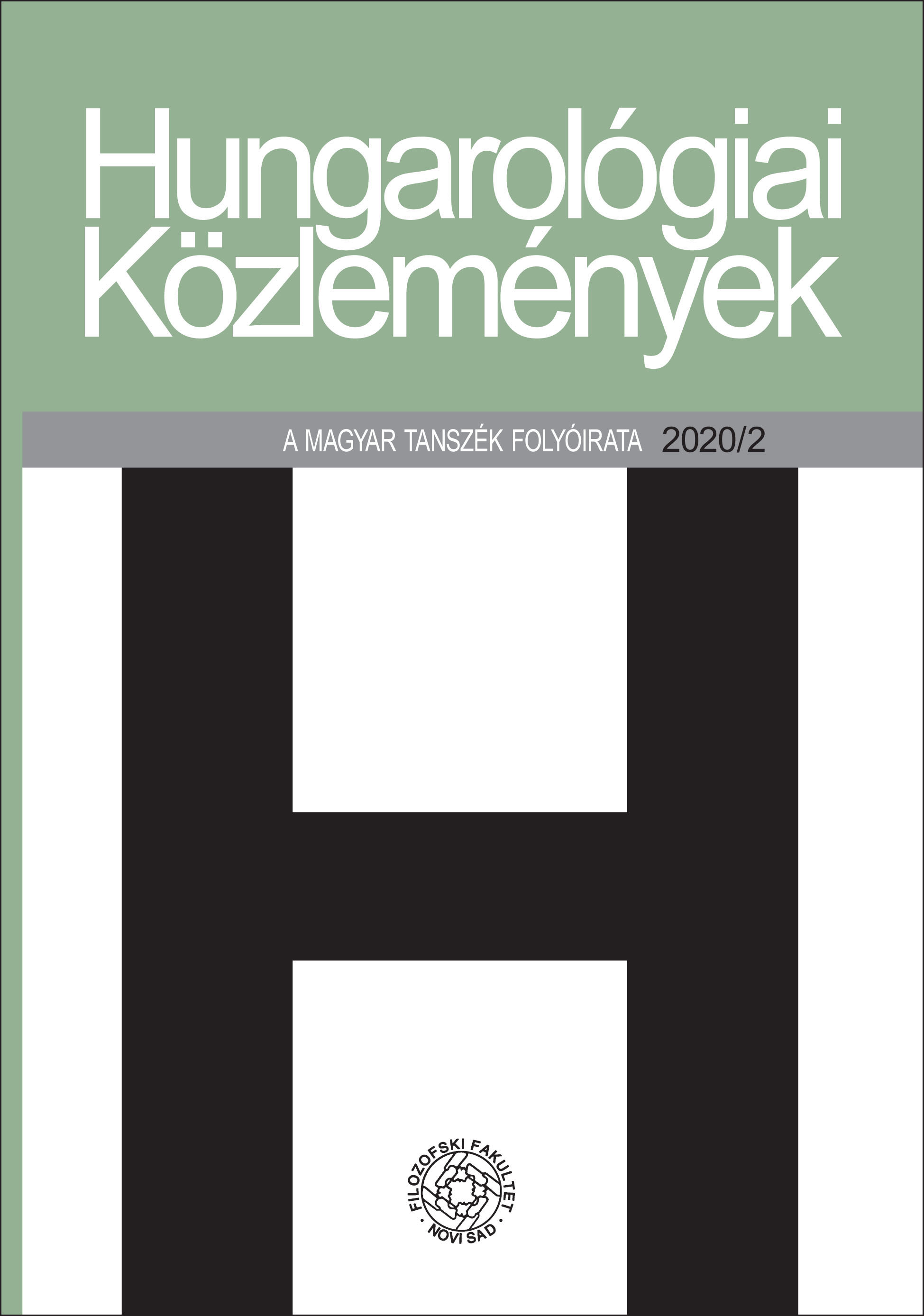
Ottó Tolnai’s works have been interwoven with references to world literature from the very beginning, and his writings are in constant dialogue with the philosophical and artistic aspirations of his time, as well as with many important authors and phenomena of cultural history. One of the distinguished directions of his unprecedentedly wide orientation is Russian literature and culture. The present study is the first part of a more comprehensive research aimed at mapping and interpreting the Russian codes of Tolnai. The study addresses both the issue of the transference of tradition in Russian literature and the historical-political contexts of Russian cultural codes in Tolnai’s early works.
More...
Petőfi’s only completed drama is not one of his popular and frequently cited works. Its interpretation has not become an integral part of the oeuvre: even in János Horváth’s substantial monograph, there are only a few unfavourable words about the play, which attempt to make the writer’s failure understandable. Horváth’s words, however true, are basically worded by criteria for the reading of a play and not performing it on stage. Even though the text of the play can be characterised by such criteria, nevertheless, it can still be adequate material for stage performance. Undoubtedly, his drama lacked the creative stage reception that could justify the existence of this unconventional form of conventional wording. However, this does not mean that Petőfi’s excursion into this genre of literature should not be taken seriously, and that his practical theatrical experiences should be neglected while analysing the play.
More...
Imre Bori saw in sociography the possibility of a renaissance of Hungarian prose in the middle of the nineteen-sixties. This renaissance did not come at the time, however, sociographically inspired works or sociographies have had a powerful influence on literature since the 1970s, and as a typically oppositional genre, on politics, too. Nowadays, we can once again observe that more and more literary works are created which the critics tend to regard as works of (new) realism. Several questions can be raised in this regard. First, what is the reason for this new wave, what aesthetic quality does it bring and then, – referring to Bori – is the strong presence of sociographic elements in contemporary literature about to bring a renaissance of prose? The study engages in tackling these problems.
More...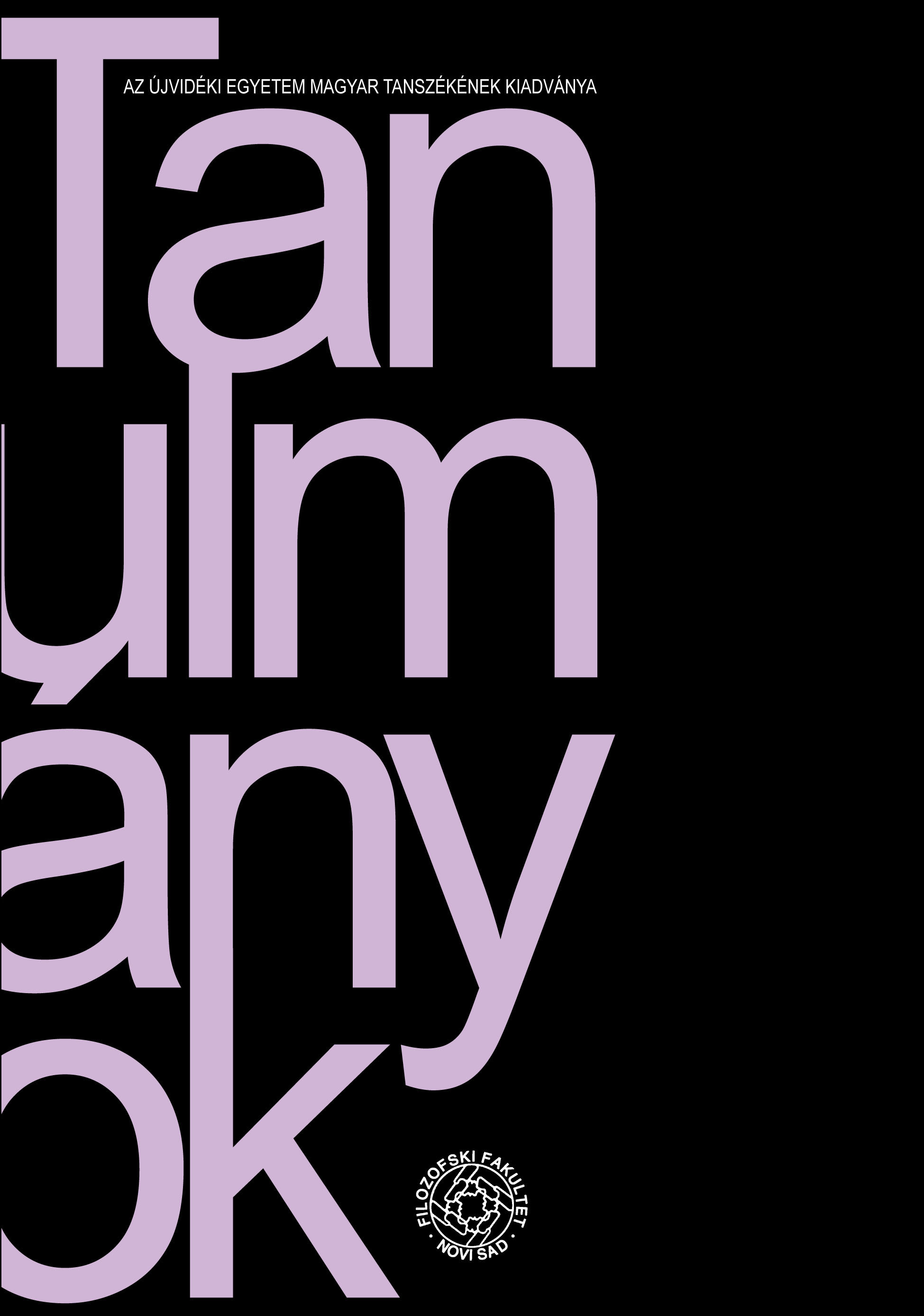
The study focuses on the elaboration of literary, cultural and cultural historical issues arising in connection with the 1813 drama of József Katona’s István. À Magyarok Első Királlya [István, The First King of the Hungarians]. Taking into account the theatrical and political-historical context of the origin of the work, the study places the play in Katona’s oeuvre. Following the exploration of the playwright’s historical studies, the history of the cult of St. Stephen (Szent István) and the history of the subject, the dissertation reads beyond Katona’s drama, which is realized along the attributes associated with St. Stephen and their symbolic meanings.
More...
The Hungarian immigrant author, Sándor Márai thought that his works were not possible to translate, but his success in the international book market since the turn of the Millennium have brought an effective denial of the author’s expectation. Abroad, in the center of Márai’s most read books is the novel A gyertyák csonkig égnek (Embers / Les braises / Le braci / Die Glut) which is not seen by the Hungarian critics as a most ambitious work of the author. The key of its success could be the nostalgic feeling about the Austro-Hungarian Monarchy’s lost world. How could we get from his actual success to the dialogue of his oeuvre with the world literature? The answer could be given by the research of the international and regional literary context of Márai’s work. As an example, the study aims to highlight the deep connections between the approach of language and identity of the novel A gyertyák csonkig égnek and the Austrian (and in the broader sense Central-European) Modernism.
More...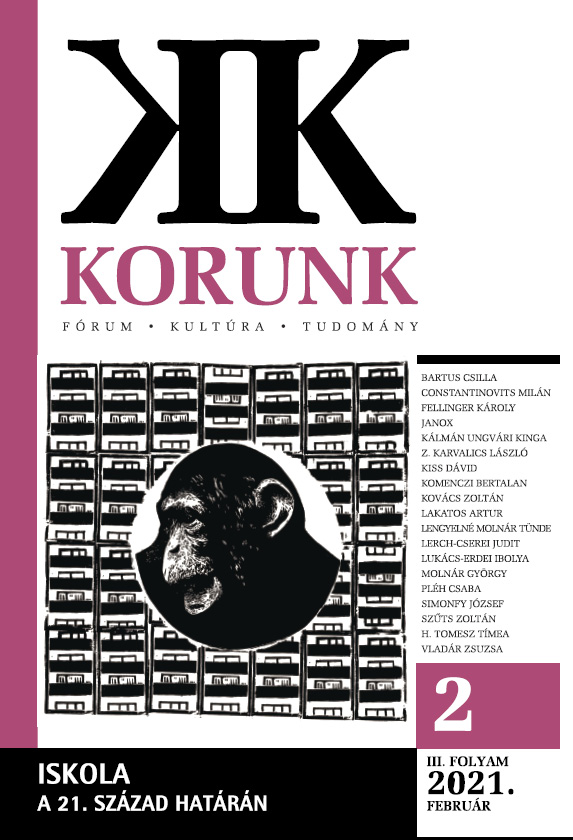
Book review of Viktor Brassai’s volume, titled Példázat kétkedőknek (A Parable for Doubters).
More...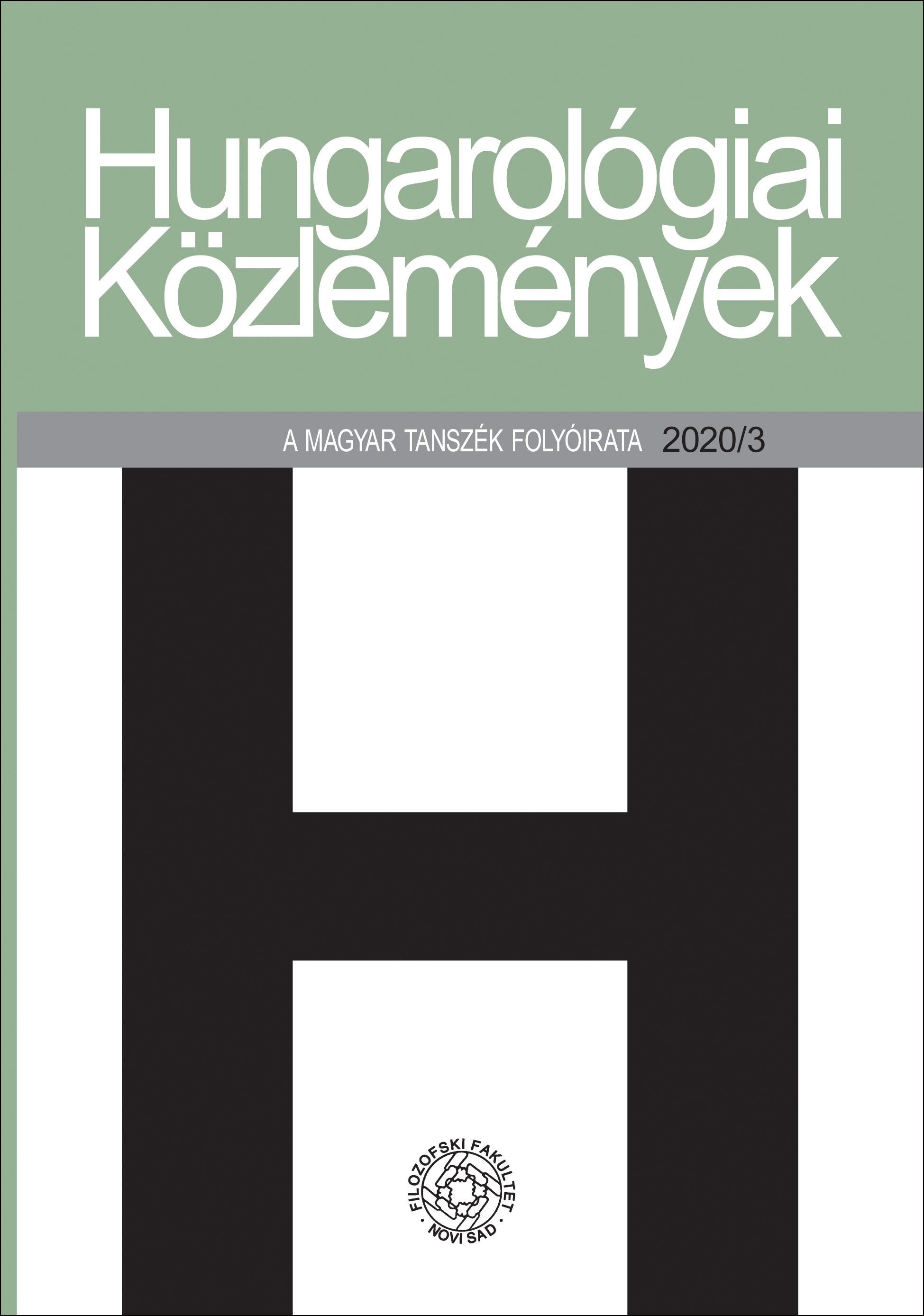
The research examines one of the most important principles of the Hungarian literary history discourse in Vojvodina – considered valid to this day – the axiom formed at the beginning of 1918. The interpretation and understanding of the results take into account the ideological influences, historical-poetic traditions and literary approaches that led to and influenced the above-mentioned canonization procedures (synthesis of Hungarian literary history in Vojvodina, creating the Lexicon of Hungarian Literature in Yugoslavia then in Vojvodina, publishing book histories and bibliographies) the beginnings of Hungarian literature in Yugoslavia / Vojvodina were connected with the date of the establishment of a political construct, the Kingdom of Serbs, Croats and Slovenes. The paper presents the sense in which modern perceptions of the history of literature have overturned the positivist and substantive methods that defined the mentioned historical ideas, thus modifying / deconstructing the overall picture of the life form of Hungarian literature in Yugoslavia / Vojvodina. At the same time, the interpretation preserves the canonical, forward-looking and enduring values of historical traditions (e.g. Imre Bori’s vision of literary history).
More...
Artúr Munk’s two works of fiction A hinterland (The Hinterland) and Bácskai lakodalom (Wedding in Bácska) are both set in Porváros (Dustland), a little rural town which can be easily identified with Szabadka on the basis of tracable references. The aim of the comparative textual analysis of this study is to present how the novels’ fictional worlds describe Szabadka as a textual town, and how the author reshapes his hometown as the scene of his stories in Dustland. The town-narrative that unfolds during the course of the analysis of the Munk opus does not only reveal the literary mapping of the built town’s spaces and residents, but on the basis of comparison with autobiographical elements it directly justifies the functioning of the autobiographical space and the presence of the referential reading as well. The dissertation focuses mainly on the study of the squares, public and private buildings of the city narrated in Munk’s works, the descriptive direction of the “reading” of space, and the small-town characters, through which Artúr Munk becomes aware of his own (small) urban environment in the early 20th century Szabadka.
More...
Book review of Miklós Zelei’s novel titled Gyilkos idők (Murderous Times).
More...
Borcsa Imola: Magnebéhat. Napkút – Erdélyi Híradó, Bp.–Kvár, 2019.
More...